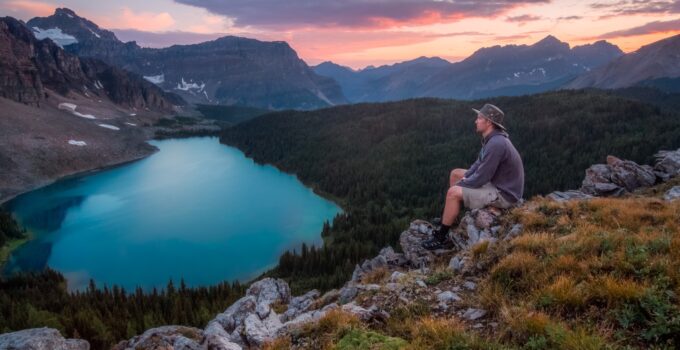Almost everyone who works hard has a desire to have a good holiday at least once a year. Some people prefer active holidays, others go to quiet places where they can relax and clear their minds. In order not to spoil your holiday and spend your free time usefully, it is necessary to adhere to a few simple rules. A beginner tourist with no travel experience can get into an awkward situation with unpleasant consequences. Many people like to travel spontaneously. As soon as free days are available, they rush to go wherever they see fit. Such journeys can be dangerous and not at all positive.
Any hiking trip is a great low-intensity workout. Hiking has many physical and mental benefits. From reducing anxiety and stress to preventing osteoporosis. Hiking is a great outdoor activity with many benefits amid beautiful scenery.
Unlike sporty walking on a treadmill or on a paved path, hiking is more fun, carries a lot of new experiences, and can sometimes throw up an unexpected situation. And of course, solving various problems makes the journey brighter and more interesting (unless of course there are health problems). But in order to travel all the way in one breath, you need to take safety precautions when hiking. And if you’re a beginner hiker, these few important tips will help you discover the full beauty of hiking.
Page Contents
And so the first hike begins
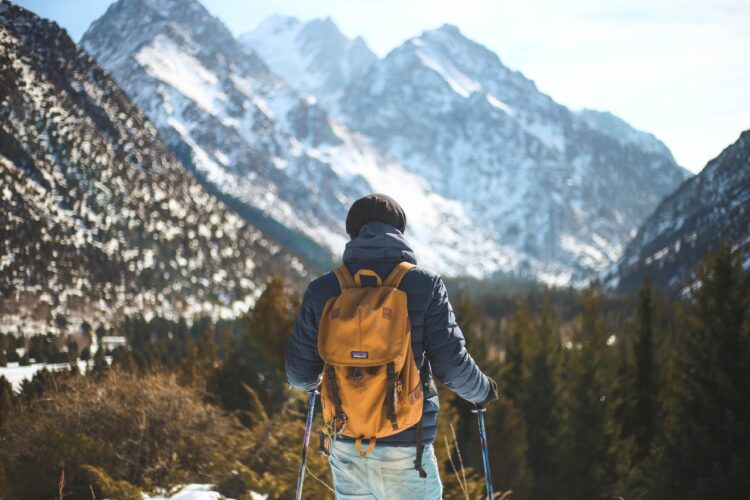
Source: pexels.com
Start small and choose the right route that best suits your fitness.
Choose a distance slightly shorter than you can cover on a flat, paved road.
1. Pack 5 essentials
These are not precise items, but whole systems that will be indispensable when interacting with wildlife. Depending on the length of your itinerary, these systems may fill up or, conversely, diminish.
- Tent, sleeping bags, bedding, folding chairs, and more. That is all necessary things for sleeping, resting, cooking and eating which you may get all over the internet, on sites such as SIBEREON.
- Food and drinking water. In camping take mostly vegetables and cereals.
- Protective gear. You must always take a first aid kit. It should be not only tools for insect bites but also antiseptics, painkillers, antiviral, antipyretic. As well as medications improving the function of the gastrointestinal tract and cardiovascular system.
- Tools. You should take a shovel, a saw, an axe, etc. to nature.
- Warm clothes. The weather changes frequently in the countryside, so you should take care not to freeze in the rain or at night.
All the details are worth thinking about so that nothing can ruin your holiday later.
The list looks scary, but the usefulness of each system cannot be underestimated.
It’s also not a good idea to go on a trip with someone you don’t know very well. It’s better to holiday with your family or friends. This way you can only strengthen your relationships. One should always take care of his safety when leaving home. Valuables, documents, and money should be kept with you so that you can get to them quickly, but an outsider has a hard time.
2. Familiarise yourself with the trail as much as possible
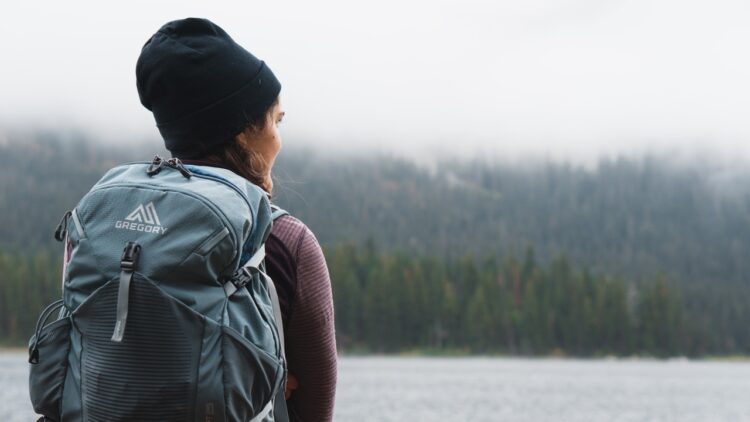
Source: pexels.com
When you decided to go hiking for the first time and set the route, try to study it on the map and read the reports of people who have already walked it. This way you can avoid unpleasant surprises, and you might visit interesting places that you might have missed. There are many excellent forums and blogs on the internet, thankfully.
It’s worth paying attention to the landmarks so that you can always check whether you’re on the right track. Maybe you have planned a comfortable place for lunch or an overnight stay.
3. Be sure to check the weather
In the run-up to your trek, be sure to check the weather and, if possible, check it again just before you leave. This will give you valuable information on how to dress and what to take with you. If the weather forecast is dire, it will give you an opportunity to change plans rather than ending up in an emergency.
Tell someone about your exact plans, itinerary and how long you plan to be traveling.
It is important that someone not on the hike knows the route and time, and therefore when to worry and call for help. Note, this doesn’t apply to a delay of a couple or three hours, but only if communication with you is cut off and you don’t arrive home on the planned day.
A great option is to carry a transmitter or tracker that will allow you to call for emergency help via satellite.
4. Wear the right shoes and socks.
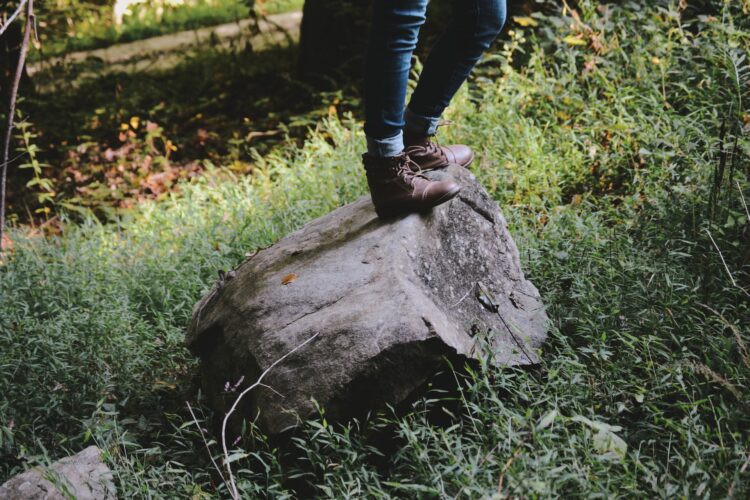
Source: unsplash.com
Damaged feet are the worst enemy of any hike. Invest in good quality shoes and socks. This doesn’t mean buy heavy leather boots, as there are plenty of lightweight and inexpensive shoes on sale today for sports and travel. Don’t skimp on the socks, and please avoid cotton, preferring wool or good quality synthetic. Also, pack blister bandages just in case.
5. Dress comfortably.
Once you’ve taken care of your feet, pay proper attention to your clothes. Try to get rid of cotton undergarments because once this material gets wet, it stays that way. You’ll be extremely uncomfortable walking with a wet back. It can also cause irritation. Look for synthetic clothes instead, as they’re able to shed water and regulate your body temperature well.
6. Try to choose lightweight clothes.
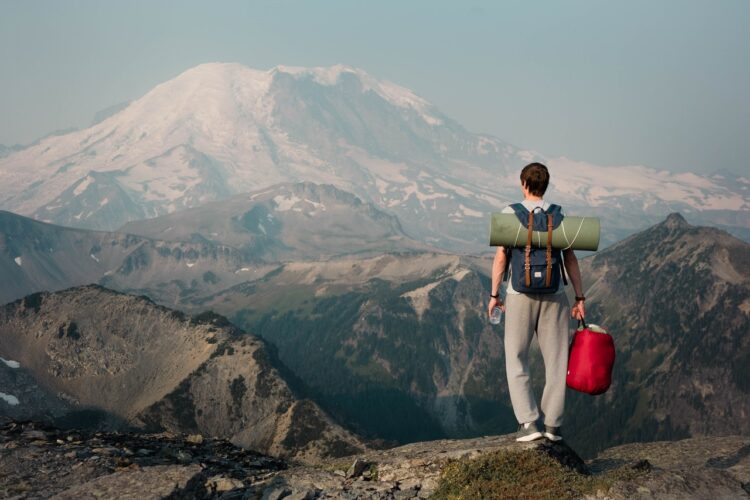
Source: pexels.com
This means paying attention to the weight of each item. For instance, you take a small tube of sunscreen instead of the half-liter jar you bought at the supermarket, and so on with every item of clothing.
7. Keep a moderate pace.
When you start your first hike, you may get the feeling of being a “hero” who can move forward relentlessly. However, by the end of the day, you’ll be zero if you don’t control yourself. Instead, choose a pace that you can maintain throughout the day.

